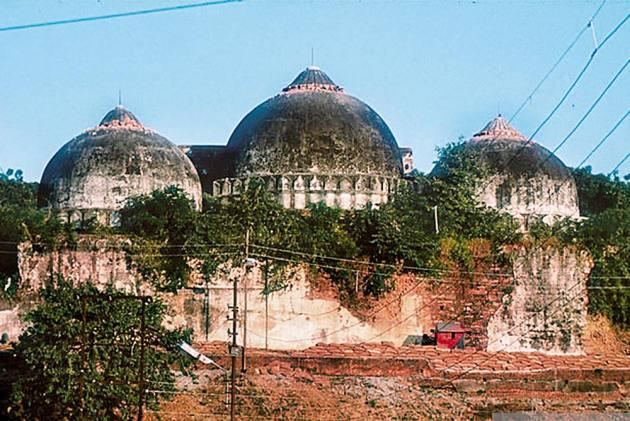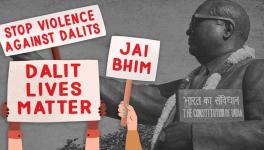In a Matter of Bread Versus Babri

Image Courtesy: Outlook India
The Supreme Court seven-bench verdict on the Babri masjid-Ramjanmbhoomi dispute has elicited various reactions. Those who were part of the mosque’s demolition feel vindicated and see in this verdict the highest court upholding their beliefs and faith. The minority community and most people who uphold democracy, pluralism and rule of law as abiding values see in it a blatant violation of justice.
Whatever position one may take, the verdict has still left one question open: what next? Those associated with the construction of a temple dedicated to the Hindu god Ram at the site of the Babri masjid have been given the vehicle of a trust by the court, through which they can pursue their vision. Some human rights groups and a few Muslim organisations want to appeal to the Supreme Court to review its judgment. Still more Muslim organisations want to “move away” from the issue. The latter, who do not want a review, argue that the Ayodhya issue has tormented not only the Muslim community but has strengthened communal politics. They feel that it has dealt a severe blow to Indian pluralism and injured the idea of fraternity enshrined in the Constitution.
An open letter with the message to “move away” has been signed by over 100 Muslims coming from different walks of life, including prominent personalities such as the actors Shabana Azmi, Naseeruddin Shah and the civil rights activist and journalist Javed Anand. Their letter says, “We share the unhappiness of the Indian Muslim community, constitutional experts and secular organisations over the fact that the highest court in the land has placed faith above law in arriving at its decision. But while agreeing that the court order is judicially flawed, we strongly believe that keeping the Ayodhya dispute alive will harm, and not help, Indian Muslims.”
True, in order to uphold the rule of law and justice, it appears very necessary to ask the Supreme Court to consider its verdict again. Yet, if one takes stock of the political games that have been played around the Babri issue, there is no doubt that sectarianism has thrived around this issue. For instance, the Rashtriya Swayamsevak Sangh or RSS and its affiliates were strengthened like never before by the polarisation that they engineered around this dispute. The RSS’ political offshoot, the party in power Bharatiya Janata Party (BJP) also drew its electoral strength only after it helped this dispute enter the public realm. From just two Members of Parliament in 1984, it has now risen to 303 MPs.
The RSS combine raised other polarising issues such as love jihad, cow-beef, ghar wapsi, not to mention nationalism—particularly through anti-Pakistan rhetoric—but the Babri dispute and construction of a Ram temple has remained a central issue throughout for the Sangh outfits and the BJP. Building a temple is the only issue that the BJP has mentioned in every manifesto, ever since it was floated as a political party in 1984.
While the nation united for the anti-colonial movement, in contrast, the Hindu right took a series of steps to inflame passions with its Ram temple campaign. The emotive upsurge they fanned had at its core the idea of hating Muslims and seeing them as an outsider. Such was the effect of these emotions they aroused around the Babri issue that today Indian Muslims have been relegated to the margins of society.
So now one can easily understand the spirit behind the “look away” letter. So long as the campaign on the Ram temple continued, the basic needs of society—bread, butter, shelter, education and employment—were relegated to the margins and matters of faith were placed on the forefront. Besides, “faith” was being manufactured to serve political goals. Six or seven decades ago, no one talked that any precise spot at which Lord Ram was born. There was no talk about the spot being where the mosque once stood in Ayodhya. But now, it is commonly believed by a section of Hindus that the mosque was built where Ram was born.
During this period, violence in the name of religion also kept rising, and Muslims, as different studies show, were the biggest victims. To cap it all, analysts have shown that in the aftermath of such violence, it is the BJP that stands to gain electorally, significantly more than any other political outfit. The story of the pain and marginalisation of the Muslim community runs parallel to the Babri issue.
Apart from physical insecurity, dealing with the aftermath of violence and other issues, the Sachar Committee and justice Ranganath Misra Commission have also shown as how the economic and social conditions of the Muslim community has become abysmal. Therefore, the logic behind this letter appealing to not file a Review Petition stands out very clearly.
And why only Muslims? As the RSS and its militant offshoot, the Vishwa Hindu Parishad (VHP), take command of the temple-construction work, what is really the plight of the majority community, the Hindus, in whose name the entire Babri-Ayodhya exercise has been undertaken? While delivering the Asghar Ali Engineer memorial lecture recently, the public intellectual and economist Prabhat Patnaik points out that majoritarianism does not enhance rights or deliver material benefits—not even to the majority community. Perhaps one can add that the poorer sections of the majority community are used as cannon fodder in this kind of politics, while its elites reap the rewards, in the comfort zones of their homes and offices.
Yet, to review or not to review is a dilemma, all said. Should one struggle for justice in the real sense, by asking the courts to review a terribly flawed verdict? Or shall we let the issue linger on? Or, should we look back and see who really stands to benefit if this issue is rekindled? Do we not need to bring our focus back in the direction our republic took when it was born? The path of material progress, solving agrarian issues, taking urgent steps against rising unemployment, ensuring that our children do not die due to lack of oxygen in the hospitals, ensure that a scientific temper is promoted, as was envisaged by the country when it was newly-born. The letter by Azmi, Shah and others is a timely intervention and needs to be taken with all seriousness.
Ram Puniyani is a social commentator and activist. The views are personal.
Get the latest reports & analysis with people's perspective on Protests, movements & deep analytical videos, discussions of the current affairs in your Telegram app. Subscribe to NewsClick's Telegram channel & get Real-Time updates on stories, as they get published on our website.
























